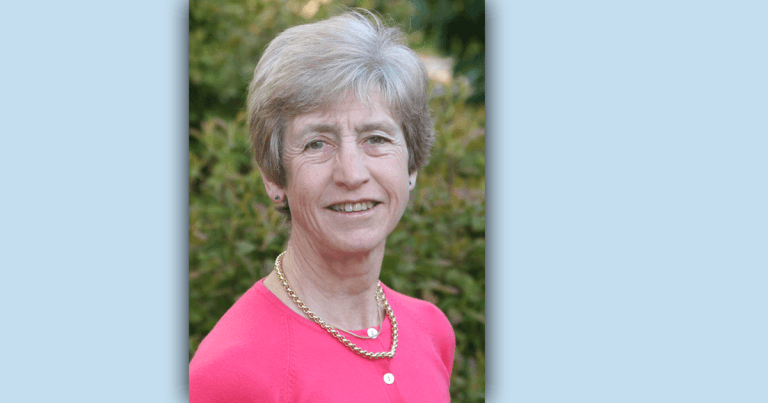16 Jul 2021
Eminent equine vet Sue Dyson, an RCVS fellow, is struck off register for disgraceful conduct after falsifying letter from a fictional Home Office official for a weight study.

Sue Dyson.
An eminent equine vet and RCVS fellow has been struck off for disgraceful conduct after being found guilty of falsifying a letter from a fictional Home Office official.
The RCVS disciplinary committee heard how Sue Dyson – former head of clinical orthopaedics at the AHT’s Centre for Equine Studies – forged a document in an attempt to show her study into the impact of heavy riders on horses had been approved by the government, when in fact it had not.
Last week (9 July) the committee heard Ms Dyson admit how, on 19 December 2018, she had sent a letter to the AHT’s Equine Research Group claiming to be a Home Office inspector by the name of Dr JC Butler, stating there would be no need for a Home Office licence for Ms Dyson’s research.
The paper, titled “Influence of rider: horse body weight ratios on equine welfare and performance – a pilot study” was initially set to be published in the Journal of Veterinary Behaviour: Clinical Applications and Research.
Research projects that involve animals are often required to acquire an ethical licence from the Home Office under the Animals Act 1986.
Previously, in 2018 after Ms Dyson had carried out her research, she had submitted the paper to the journal for peer review when colleagues requested that the research be submitted again with details regarding a licence from the Home Office.
Ms Dyson responded to their concerns stating that a licence was not necessary to carry out her research, which she had been informed of by a “friendly inspector” at the government department.
Editor of the journal, Karen Overall, in an email responding to Ms Dyson’s claims, said: “The consensus is that it would be best for everyone – including the journal – if you could get a letter from the Home Office and add that this was provided to your ethical statement. There are a range of opinions involved here, but we want absolutely no hint of concerns for anyone that any law has been broken or taken to be trivial.”
On Christmas Eve 2018 Dr Dyson attached a letter to her research paper, dated 19 December, from the fictional Dr Butler. The letter read: “To whom it may concern: I am writing to confirm that my advice was sought, in my position as a Home Office Inspector for the UK Animals (Scientific Procedures) Act, concerning the rider weight project coordinated by Dr Sue Dyson of the AHT.
“It was my opinion that a Home Office Licence was not required, based on detailed assessment of the protocols, together with the practices which are undertaken for the purposes of recognised animal husbandry, the thresholds laid down by the UK Animals (Scientific Procedures) Act, and the Animal Welfare Act.”
Peer reviewers for the journal followed up with the Home Office about the identity of the supposed “friendly inspector”, only to be told by Martin Whiting, head of operations at the Animals in Science Regulation Unit of the Home Office, that the government department had no record of a Dr Butler ever working for it.
In a letter written to Dr Whiting by Ms Dyson on 24 February, Ms Dyson admitted that sending the falsified letter was a mistake. Ms Dyson said: “I do not know what drove me to send Dr Butler’s letter. It is a decision that I will eternally regret. I am an inherently honest person and I have questioned this every day. I was under a huge amount of pressure.
“Obviously, when the journal questioned whether Home Office approval was required, we should have contacted you immediately. I do not know why, as co-leader of the team, we failed to do this.
“The extra pressure that I have felt as a consequence is overwhelming. I humbly ask that this act of madness could be overlooked.”
Ms Dyson would go on to withdraw the falsified letter before writing to William Reynolds, head of the Animals in Science Regulation Unit at the Home Office, on 1 March 2019.
In the letter she attributed her misconduct to “a moment of complete madness,” and admitted that she had written the letter claiming to be from an inspector for the Home Office.
Ms Dyson said: “I had three successive days in my life at this time when I seemed completely out of control of my life and what I was doing. It was a terrifying experience. I could not understand what I was doing and why. I am ashamed beyond belief by what I did and have suffered extreme mental torment as a result.”
In her final disciplinary hearing on 9 July 2021, Ms Dyson admitted that her behaviour had been dishonest, but she had not intentionally set out to mislead anyone.
In summing up, the decision of the committee was: “The committee was well aware of the impact and ramifications for Dr Dyson of any decision to remove her from the register, but had to weigh her interests with those of the public.
“In doing so it took account of the context and circumstances of the case, all matters of personal mitigation, as detailed above, Dr Dyson’s undoubted distinguished international career and reputation, and the need to act proportionally.
“However, the committee was of the view that the need to uphold proper standards of conduct within the veterinary profession, together with the public interest in maintaining confidence in the profession of veterinary surgeons, meant that a period of suspension would not be sufficient, and that the only appropriate and proportionate sanction in all the circumstances of this case was that of removal from the register.”